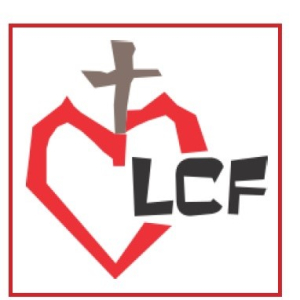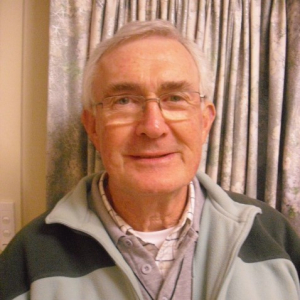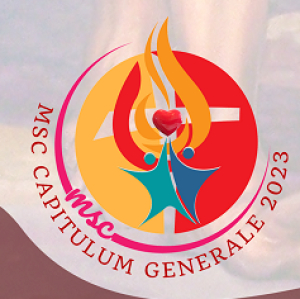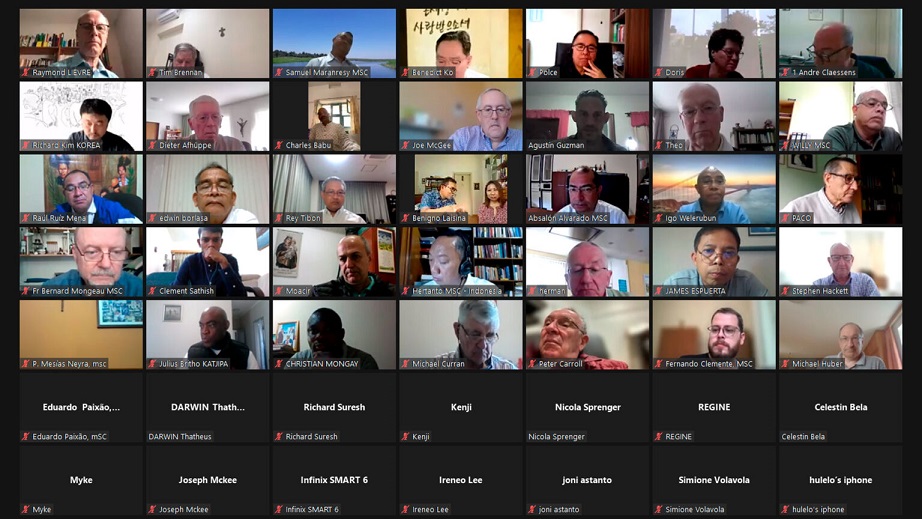Peter MALONE
Petrol

PETROL
Australia, 2022, 95 minutes, Colour.
Nathalie Morris, Hannah Lynch, Daniel Fredricksen.
Directed by Alena Lodkina.
A small budget drama, Melbourne-based, the second feature from writer-director, Alen Lodkina. The first, Strange Colours, was about a young Russian woman searching for connections in the mining town of Lightning Ridge. The central character is a young film student, Eva, played sympathetically by Nathalie Morris. She lives with her Russian parents who came originally from St Petersburg. In fact, Alena Lodkina came with her family at age 13 from St Petersburg. So, this is Eva’s story but it is Alena’s imaginative story.
While one can trace a narrative, step-by-step, throughout the film, Eva’s film study, relationship with her parents, caring for an elderly Russian lady who was to be the subject of her film, classes and discussions with her tutor, a party encounter with an artist, Mia (Hannah Lynch), a fascination with Mia, with her company, with her work, Mia disappearing at times, Eva searching for her, that is not exactly the point.
A quotation from the writer-director herself indicates her intentions: “For me, Petrol is a film about a young woman’s search of self, the strange line between self and others, the vulnerability of youth. At a time of change and discovery, when one readily loses oneself in other people, the delicate line between reality and imagination can become blurred,” says Alena Lodkina.
So, the challenge to the audience is to pick up on the allusions, the surreal suggestions, the touches of the beyond, sequences which may be real or maybe in Eva’s imagination…
The narrative and the surrealism buildup to a confrontation between Eva and Mia, some truth-telling, Eva accusing Mia of being afraid, Mia accusing Eva of spending her life and energy is trying to please everyone. There is a reconciliation, a fantasy sequence in fancy dress and the two walking into the surf, and Eva alone.
Scouring reviews has not revealed the meaning of the title – nor the comments made by the director. Nor this review.
Eva is very young – and her life is before her. Alena Lodkina has made two feature films and two short films, her career is before her.
- The title? Any indications during the film?
- The writer-director, similar background to that of her character? Autobiographical? Self-exploration through the character?
- The Melbourne settings, homes, streets, the beach, the coast? The musical score?
- The realism of the plot, Eva’s story, the Russian background, growing up in Melbourne, speaking Russian, the conversations with her mother, with her father, with Bella? Seeing her recording the ocean sounds, seeing Mia? Her film, presentation to the class, discussions with her tutor, the nature of her final film and graduation? Caring for Bella, Bella to be the subject of her film, impressions? Following the couple, the party, meeting with Mia, spending the time with her, fascinated by her? Moving in, the interactions with Mia, Mia and her disappearance, Eva searching for her, worried, the encounter with the young man, the visit to his family, the institution, discovering Mia, the scenes in the grass, the changing of clothes, formal, the drinks, at the beach, into the water?
- The surrealism of the style, Eva seeing her reverse image in the mirror, the discussion about ghosts and presence, the Ouija board? Scenes happening in Eva’s imagination?
- Mia, artist, her background, her flat, the encounter with Eva, their friendship, outings, discussions, the art? Eva moving in? Mia’s disappearance, for a long time, at the institution, the sequence in the grass, Mia being accused of being afraid, Mia accusing Eva of wanting to please everyone? The change of dress, at the beach, into the water? Mia disappearing?
- The background characters, sense of realism, Eva and her mother, shopping, the overcoat, the gift from her father, her cleaning Bella’s house? The scenes at the school, at the computer and the editing of the film? The tutor and his observations? The young man, the conversations, taking Eva to meet his parents, the art, the discussions? The psychologist and his therapy?
- The film as Eva’s self-journey, understanding herself, understanding herself through Mia and the friendship? Alone at the end, her life before her?
Renfield
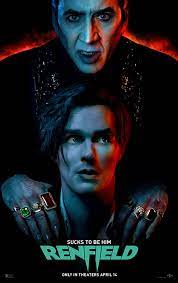
RENFIELD
US, 2023, 93 minutes, Colour.
Nicholas Hoult, Nicolas Cage, Awkwfina, Ben Schwartz, Shoreh Aghdashloo, Brendan Scott Jones, Adrian Martinez, Camille Chen.
Directed by Chris McKay.
Absolute mayhem and splatter… And that is just the first 10 minutes of Renfield!
But, in fact, that description does describe the whole of the film. It is a blend of comedy/parody and gory violence that somehow rather keeps the balance between the two making it all rather entertaining for movie buffs. Which means that audiences not Dracula fans need not read on – unless they are curious to know what is happening to Dracula in the 21st-century!
Dracula has fallen on hard times, Renfield not being able to supply him with sufficient blood. Dracula is deteriorating and he and Renfield, his servant (we remember that he was the one who went to Transylvania to do a real estate deal with Dracula and found himself enslaved!) have moved to New Orleans, a hideout in an abandoned warehouse which, unfortunately for Dracula and Renfield as well as the dealers, is a centre for drug distribution.
On the one hand, this is a parody of gangsters and corrupt police, and we are surprised to find serious actress for many years, Shoreh Aghdashloo, enjoying herself as a tough matriarch. Awkwafina is a local officer, confined to street barriers, estranged from her sister, but conscientious.
On the other hand, Renfield has become tired of Dracula’s impositions and has started going to a self-help group, and studying a book about how to deal with narcissistic monsters (which Dracula denies and ridicules). Somehow or other, the vampire story intersects with the gangster story. Lots of shootouts. Lots of fights, over-the-top mayhem with severed limbs flying.
Nicolas Cage is obviously enjoying himself as Dracula, sometimes a look of Bela Lugosi, sometimes the manner of Christopher Lee, sometimes the walk and hunch of Nosferatu, and relishing Dracula’s tone of voice and utterances as well as dominating poor Renfield (an engaging performance from Nicholas Hoult), insinuating himself into the drug family to acquire more power, abducting Awkwafina’s sister, destroying lots of thugs, but also destroying the earnest self-help group.
Of course, it builds up to be climax, but Dracula making the mistake of forgetting that a drop of his blood will enliven Renfield – Awkwafina tricking Dracula and a happy ending and, spoiler alert, Renfield able to revive the whole self-help group so that they can continue!
Tongue in cheek, a great deal of inventiveness in the story and the writing, the director relishing all the twists and turns. Stay for the final credits because it is all there in summary again and a chance to contemplate Nicolas Cage as Dracula! And, confirming with one blogger that really it is all very gory - and endearing (more than guilty pleasure!).
- The title? Renfield and his association with Dracula? Memories of his role in selling Dracula’s estate? His becoming Dracula’s servant?
- The tone of the film, comedy and irony and parody, blood and gore extremes, Mafia and drug dealing, gangsters and police and corruption? The Dracula story and traditions? All blended together? The comment of “gory and endearing”?
- The focus on Renfield, Nicholas Hoult and his presence, tall, with charm, but his memories of his greed, abandoning wife and child, hoping for a real estate deal, but becoming subservient to Dracula? Serving him, providing blood for him, responsible for so many deaths, innocent deaths? His exasperation with Dracula? Going to the self-help group?
- The old traditions, the Dracula stories, the Dracula films, the influence of Bela Lugosi, Nosferatu, Christopher Lee… And embodied in Nicolas Cage? Cage enjoying himself as Dracula, appearance, the teeth, the clothes, the decay for lack of blood, the gradual recovery, his domination, trapped in the circle by the priest and the trackers, appealing to Renfield, Redfield succumbing, Dracula escaping, two-timing, vengeful?
- Renfield telling his story, the first 10 minutes and the recapitulation, Mark and the people of the group, telling their stories? Renfield and his wanting to change, seeing Dracula as narcissistic, studying the book of how to deal with narcissists? His hiding Dracula in the warehouse?
- The encounter with the drug dealers, the assassins, the fights – and the no holds barred fights, blood, Gore, limbs flying?
- Tedward his mother, the family, the drug dealing, their mansion, the clothes? Tedward and his encounter with Renfield? The later deal with Dracula?
- Rebecca, on duty in the street, memories of her father, her partner, treatment by the other police, no promotion? Alienation from her sister?
- Redfield, at the cafe, the potential victims, the nuns, the bus of cheerleaders, the mayhem? Rebecca coming, being involved, capturing Renfield? His helping her, to his apartment, getting her breakfast?
- Dracula, his recovery, his power over Renfield? Coming to the self-help group, his destroying them? The fight with the criminals? Dracula and his power, enjoying his power? The link with Tedward, with his mother? The revelation that the police were corrupt?
- Redfield, his having to eat insects to get his strength, the boy with all the insects, buying them? His being able to be revived by Dracula’s blood?
- The buildup to the confrontation, Rebecca and the abduction of her sister, going to the dealers, confronting Dracula, making the deal with him? Renfield, gaining his strength, but fighting Dracula and losing it, Rebecca and her tricking Dracula, his blood dripping onto Renfield, Renfield survivor, Dracula trapped in the circle? Dracula destroyed? For how long?
- The revival of the members of the group, their continuing to share?
- The enjoyment of the homage to the old films, the variation on the Dracula themes, Nicolas Cage’s performance, the highlighting of Renfield?
Unlikely Pilgrimage of Harold Fry, The
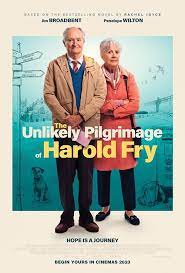
THE UNLIKELY PILGRIMAGE OF HAROLD FRY
UK, 2023, 108 minutes, Colour.
Jim Broadbent, Penelope Wilton, Earl Cave, Linda Bassett, Daniel Frogson, Paul Thornley, Joy Richardson, Claire Ashbrook, Ian Porter, Monika Gossmann, Nina Singh.
Directed by Hattie Macdonald.
This is a screen adaptation by actress-writer, Rachel Joyce, of her very popular novel.
This is the story of Harold Fry, in his 70s, played by the great stalwart of British drama (170 film and television credits), Jim Broadbent. He makes Harold Fry completely credible, makes his strange pilgrimage very credible. He is supported by another veteran of English stage and screen, Penelope Wilton, as Maureen Fry.
This is a film about secular faith and miracles – but with religious overtones, a young reformed drug addict wanting to pray and talk about faith, discussions about faith and science and cures for cancer, turning Harold’s walk into a pilgrimage, and Mureen’s final comment about miracles. It is a film of secular faith.
Harold Fry has had a very uneventful life, married to Maureen for decades, their one son, his rebellion, his father not knowing how to communicate with him, his suicide. He lives in Devon, quietly. He receives a message from an old friend, Queenie (Linda Bassett) who is dying of cancer. He writes a note. Maureen disapproves – and we later learn of the reasons, suspicions of Queenie in the past and her not giving her husband a message from Queenie. When Harold goes to post the letter, he delays, hearing a story from a girl at the garage about having faith and curing or alleviating cancer, he decides to walk the almost 500 miles to see Queenie.
While this seems improbable in fact, the screenplay makes it convincing, Harold, his age, slow walk, his set of clothes, including coat and tie, his shoes, unsuitable, his slow walk, the gradual consequences for his feet and legs, his buying toiletries, some accommodation, some sleeping in the woods… And, there are some wonderful vignettes of people that he encounters on the way, kind people, a farmer’s wife who listens to him, a migrant doctor from central Europe who is not allowed to practice, who cleans toilets, but is kind to Harold, attending him, gifting him with boots and, an encounter with a gay man at Exeter Station who asks his advice about a relationship, people stopping to give him a lift, a doctor who has faith but says that science cures cancer, a former drug addict who has found God and who accompanies Harold but, disappointingly, lapses, a man who gives the story to the media which leads to people greeting Harold in the street, and a band of protesters joining him with posters, chants, and a pilgrimage T-shirt for everyone.
With Harold, we traverse the whole of England, the landscapes, the towns and their vitality, people mainly friendly – though Harold excluded from a restaurant after asking for a glass of water because begging is forbidden, his breakdown in tears there. And, all the time, contact with Maureen, her disapproval, coming to meet him, her confession about Queenie, the support from the widower neighbour, Rex. And, there is the explanation of why Harold was indebted to Queenie, his reaction after his son’s suicide, his going berserk at the brewery and Queenie taking the blame and being fired – and his never thanking her.
By and large, the end of the film is played in rather low-key British manner, Harold arriving, the glimpse of Queenie, the nun welcoming Harold to the aged care, Maureen’s encouragement and arrival, Harold giving Queenie a souvenir gift of a crystal, the sun shining through it on, her and then the rays extending to all the characters Harold met during his pilgrimage.
A film that will be appreciated by older audiences – but would do good for younger audiences.
- The title? The popularity of the book? Adapted for the screen by the author?
- British film, opening in Devon, almost 500 miles walk the length of England, Berwick-on-Tweed? The range of vistas of the countryside, the towns and cities, city life? The musical score?
- The basic premise of the film? Harold Fry and his life, his marriage, his son, the gradual revelation about his son, 25 years of hardship, in the marriage, in his work, not achieving anything? His age? The letter from Queenie, his response, writing the note, the discussion with the young girl at the garage, a talk about faith, her aunt and the healing from cancer (and the later revelation after Harold writes her the letter and she shows it to Maureen, the truth)? Harold and his decision to walk, telling Queenie to wait for him, the continued letters during the pilgrimage, the phone calls, the encouragement to keep walking?
- Maureen, the years with Harold, their son, disappointment, hanging himself, the funeral, the distance between Harold and Maureen over the years? Her memories? Queenie with the message, her suspicions about Queenie, not giving the message to Harold? The use of regret? Suspicious about the letter from Queenie? Her reaction to Harold’s walking, anger, the phone calls, concern? Rex as a good neighbour, the death of his wife, friendly to Harold? Coming to visit Maureen, the drive with her? Her meeting with Harold, the coffee, her outburst? Urging him to continue, her being there at the end? Her reaction to the radio and television, the papers? The final reconciliation?
- Harold, his clothes, shoes, not prepared for the walk, the range of kindly people he encountered, the girl at the garage and her story and his being encouraged by her, the farmer’s wife and her kindness, the gay man at Exeter Station, the offer of a lift, the doctor and his enthusiasm but highlighting science and a cure rather than faith? The encounter with Wilf, of drugs, talk about faith, prayer, continuing on the march, Wilf taking the drugs again, wanting to steal the crystal, the credibility of his lapse or not? His leaving?
- The encounter with the doctor, her story about migration, her partner leaving her, not able to practice as a doctor, cleaning, helping Harold and his feet, the gift of the boot in the haversack, his being her guest?
- The chat with the man on the journey, telling the story to the media, the newspapers, television, Harold not aware of it, people calling out to him, giving him the bread roll, Maureen telling him on the phone, the people joining, the placards, the procession, the chant, the songs? Camping out? Yet Harold slowing down? His leaving the group, continuing on his way?
- The continued flashbacks to his son, the overall effect of the memories, the birth, growing up, playing with him, not allowing him the dog, the son getting into Cambridge, reaction against his father, shaving his head, the drugs, the smile at his father, yet hanging himself?
- Getting closer to Berwick-non-Tweed, wanting to give up, the effect on his feet, sleeping out, living off the land, the restaurant, asking for the glass of water, his being ousted, his collapse and weeping?
- Arriving, the nun, the welcome, Queenie unable to talk, the gift of the crystal, hanging it at the window? Speaking briefly? The importance of the flashbacks, seeing Queenie, her taking the blame for his destruction of the brewery, his not having thanked her?
- Maureen arriving, their sitting on the seat, talking about Queenie, Maureen asking forgiveness?
- Queenie, the crystal, the sun shining, and the crystal beams on the various characters that Harold had encountered?
- A film of faith, secular faith, prayer, miracles, kindness, confession, forgiveness?
Plancha/ Happy 50
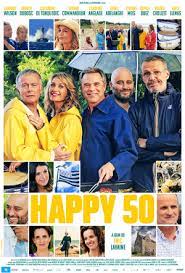
PLANCHA/ HAPPY 50
France, 2022, 100 minutes, Colour.
Lambert Wilson, Franck Dubosc, Guillaume de Tonquedec, Jerome Commandeur, Caroline Anglade, Lionel Aberlanski, Lysiane Meis, Sophie Duez, Valerie Crouzet, Alice Llenas.
Directed by Eric Lavaine.
The French title is playful, reference to the hotplate on the barbecue. It probably serves as a metaphor for the various ingredients that go onto a hotplate, warmup, get heated, can get burnt! The English title is very straightforward, factual – except that this celebration of the 50th birthday is often unhappy.
This is a very French film, French sensibilities, French manners, interactions. We are introduced to four couples at the airport, planning to fly to Greece for a holiday for the 50th birthday of one of them, Yves, Guillaume de Languedoc, very cheerful, hopeful. And the plane is cancelled. Yves suggests they all go to his home in Brittany – and, with some reluctance, especially about the lack of sunshine for the vacation, they drive there, welcomed to his home by Yves, his delight in explaining everything Breton to them, especially his ancestors.
Many times throughout this film, the audience might be wondering what they are doing sharing this holiday with the couples, especially with three of the men who are particularly cantankerous. And, at times, we seem to be listening in to conversations which we would prefer not to hear, that we are eavesdropping. And, at times they can be particularly dislikeable!
It does rain. It pours. But, the group find things to pass the time, jigsaw puzzles, Trivial Pursuit, some outings and walks towards the ocean…
However, grumbling and cantankerousness often prevail. Baptiste, Franck Dubosc, can be particularly obnoxious, thinking that he might have been sacked from his long-time job, waiting for a phone call from his boss, highly critical of his patient wife, condescendingly patriarchal in his remarks. Actually, his friends don’t include him in their particular club, Tennis Without Baptiste, because he is not a team player, and a poor tennis player at that. Can he be redeemable?
The wives are present for the vacation but tend to be put into the background.
Then there is Antoine, the leader of the group, played by veteran Lambert Wilson. He is also a complainer, hard on his wife, still brooding over the death of his father a year earlier, a father with whom he could not communicate, who disliked him. Not surprisingly, at one stage, his wife considers leaving him.
The seeming odd man out of the group is Laurent, Liionel Abelanski, not as well educated as the others, very poor at Trivial Pursuit, not even knowing the novel featuring Jean Valjean. And he is rather resentful of another friend from the past, Jean-Michel, Jerome Commandeur, who comes with his wife and son from Costa Rica where he has successfully set up a business (and who knows all the answers in Trivial Pursuit). Laurent’s wife is an amateur sculptor and brings one of her works as a gift only to discover that everybody thinks it something of a joke.
And, there is more to come, with Antoine bringing a gift for Yves 50th, investigations as to his ancestry – big mistake, some disillusionment for Yves, but information even more potentially disastrous and the dilemma of should a secret be kept or should the truth be out. There is a very effective sequence where the group discuss this issue and devise a way to determine whether the secret should be kept or not.
After spending this vocation with the group, whether we like it or not, we realise that friends like this do need some kind of looking back at the past, acknowledging mistakes and clashes, a bit of confessing to cleanse the soul. Which does mean that they can participate in a local Festival, dance, have a happy ending.
So, the question – whether we really want to be on holidays with this group or not!
- The French title, the barbecue hotplate, the references during the film? The English title, straightforward?
- A film about middle-aged, contemporary crises, friendships, secrets, falling out? Memories of the past? Hopes for the future?
- The introduction to the group, the atmosphere, the 50th birthday, the holiday plans, to Greece, the plane being cancelled? The effect, the decision about Brittany, arguments for and against? The drive, the assembly at the house?
- The ensemble, the couples, past friendships and links, marriages? The audience liking the members of the group on not? Identifying with them? Sympathising with them? The experience of listening in, eavesdropping on private conversations? Response to cantankerous interactions? The audience want to be with the group – not?
- Yves, his birthday, his relationship with Laure, married, the children away, the success? His pride in being Brett on, the tour of the house, the photos, his ancestry? His chatter, pleasant, naive? Relationship with each of the others? His story, his foibles, the jigsaw puzzle and Jean-Michel folding it up, but restoring it? Coping with the group, the weather, suggesting outings, art galleries, festivals and dancing? The gift of the sculpture first birthday, reactions, Natalie breaking it? The gift of the ancestry search, and the revelations, his grandmother and the gardener, and the information about his own children? His wife wanting to tell him, the discussion at the table, asking his opinion about secrets and his giving his opinion? The secret remaining?
- Laure, posters, the support of her husband, enjoying the presence of the group, the activities, her cooking, the virgin cocktails, Baptiste putting the alcohol, her drinking, the consequences, the issue of the ancestry information, her withdrawing, drinking, the decision to tell her husband, the group shielding her, the discussions about the grandfather gardener, Yves and his opinion, his talking about caps then and the tennis coaching? Her keeping the secret?
- Antoine, the leader of the group, his moods, wanting sunshine, cantankerous, tense relationship with his wife? His interventions, his moods, the entertainment, the gin in the drink, drinking, the issue of his smoking? The clash with his wife? The memories of his dead father, the clash with his father, walking out, the train, going to the cemetery, the frank talking with his father, his drawings a child, his father not praising him? The return, the reconciliation with his wife, dancing? His wife, love, the marriage, finding her husband wearing? Her wanting to walk out?
- Baptiste, age, relationship with his wife, dominating her, critical of her decisions, her decision to buy the house, is not seeing it? Continued anxiety about his boss not ringing, his promotional not? Cantankerous? Telling stories with exact detail, the others finding him wearing? The discussion about tennis without Baptiste? His anxiety over it? The reasons for the others? His putting the alcohol in the virgin cocktails? Audience put off by him? His dominating his wife, her patience? Finally getting the information about his promotion, the change in him, happiness?
- Laurent, his wife, her sculptures, his setting up his business, his place in the group, past friendships, but not so well educated, not knowing the characters of Les Miserables…? His antagonism towards Jean-Michelle, some jealousy? Jean Michel and his speech about bandaging benefiting from Lawrence modelling of self sufficiency? Natalie, the sculptures, the reaction to the gift, the smashing it, being hurt?
- Jean-Michel, friendships from the past, his wife and son, happy, Costa Rica, his business? Genial, well-informed, all the answers and Trivial Pursuit, the issue with the jigsaw, putting it together? His story, the travel, his company, deciding to set up his business in Costa Rica, success? His relationship with the group, not able to keep secrets, translating for his wife? The issue of Yves and his children? His declaration to laurel and the bonding between them?
- The need for honesty and relationships, telling the truth, preserving secrets, the holiday as an occasion for facing oneself, honesty, hopes – and the final celebration and dancing?
My Days of Glory? Mes Jours de Gloire
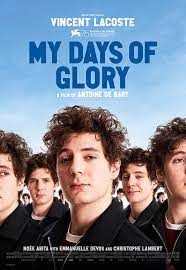
MY DAYS OF GLORY/ MES JOURS DE GLOIRE
France, 2019, 98 minutes, Colour.
Vincent Lacoste, Emmanuelle Devos, Christophe Lambert, Noee Abita.
Corrected by Antoine de Bary.
To appreciate this story of a young man going down, one would need a very French sensibility.
Vincent Lacoste portrays Adrian, age 27, who had worked in cinema, but is suffering from some kind of crisis, partly with friends who support him, but irresponsible in his financial dealings, losing his apartment, moving back with his parents. He is characterised as self-centred, rather narcissistic. And, as the audience watches him, it is very difficult to have any kind of sympathy for him, even empathy with him as he continues his wilful behaviour.
He pulls a stunt with the fire brigade early in the film, allegedly getting into a building to rescue his girlfriend but are set up to get notice – and to be fined. He goes to a casting call for a film about the Jung Charles de Gaulle, auditioning, seeming to be successful, encountering the actor who portrays to goals brother and a scene challenging his sexuality and issues of nudity, then finding that without notice, this actor has taken over the role of the goal. He does meet an attractive young woman at the hearing about his fine, she also having a fine, and the various encounters. One of the issues which he takes to a therapist is that he is impotent, discussions about this happening at his age of 27 and his various attempts at sexual arousal.
Ultimately, he goes into therapy, not very cooperative with the group or with the Dir who wants him to leave.
He does not get much support from his father, played by veteran Christophe Lambert. He gets much more support from his mother, a therapist, played by Emmanuelle Devoe. At the end, in a frank talk with her son about herself, her past, her marriage, depression, giving up studies, therapy and beginning psychology studies for some kind of self-rehabilitation, she does offer some hope for her son. The final sequence is too easy solution, Adrian having a sexual encounter with one of the other members of the therapy group – and the question of whether he really has a future.
Bleeding Steel
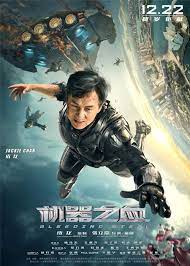
BLEEDING STEEL
China/Hong Kong, 2017, 10 minutes, Colour.
Jackie Chan, Show Lo, Na-Na OuYang, Erica Xia-Hou, Callan Mulvey, Kym Gyngell, Damian Garvey, Gillian Jones.
Directed by Leo Zhang.
The main reason for seeing this action show is Jackie Chan, longtime veteran of so many action films, in Hong Kong, Australia, the United States. Jackie Chan has been popular in films for many decades – and, even in his 60s, is not giving up on action, demonstrating his skills, and good camera angles, for a range of fights.
Much of the film was made in Sydney, capitalising on Sydney and is scenery, harbour, harbour bridge, and, especially, the Opera house with Jackie Chan and his opponent fighting on the top of the sales of the Opera house!
The film opens with lots of action, Jackie Chan has a special operator, having to rescue a scientist involved in experimentation is, set on by a squad of masked militia, led by something of a mutant.
Then the action moves to filmmaking, the ideas of a film writer, and the translation of these ideas into an actual scenario.
For those interested in the action, complicated plot and the science fiction and fantasy elements may not be important. For audiences wanting to work out what is actually happening, much more difficult. It involves Chan, his searching for a young girl who is the subject of the experimentation, a young man who becomes attached to her, target of Chan, it everybody combining for final confrontation, aided by one of the agents, Susan, who worked with Chan in the initial saving of the scientist.
Members of the Australian cast include Kym Gyngell as the scientist, Damian Garvey as the screenwriter, Callum Mulvaney as the mutant, Gillian Jones as a witch.
For the action fans – for others, take it or leave it.
Laity of the Chevalier Family, Newsletter: Encounter of Hearts
Laity of the Chevalier Family, Newsletter: Encounter of Hearts
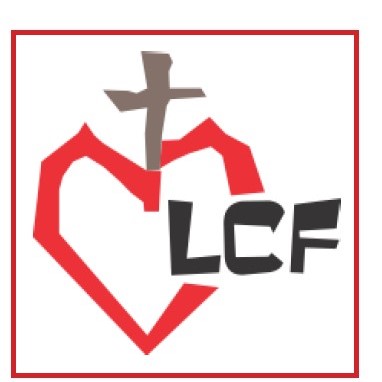
Alison McKenzie writes:
We have just mailed out the 2023 edition of Encounter of Hearts. This is a very important edition of the newsletter of the Laity of the Chevalier Family as it contains the revised Guiding Principles and many of the processes and policies that we have worked on globally over the past 6 years.
Here is the introduction to the mailout:
Greetings to all members and friends of the Chevalier Family
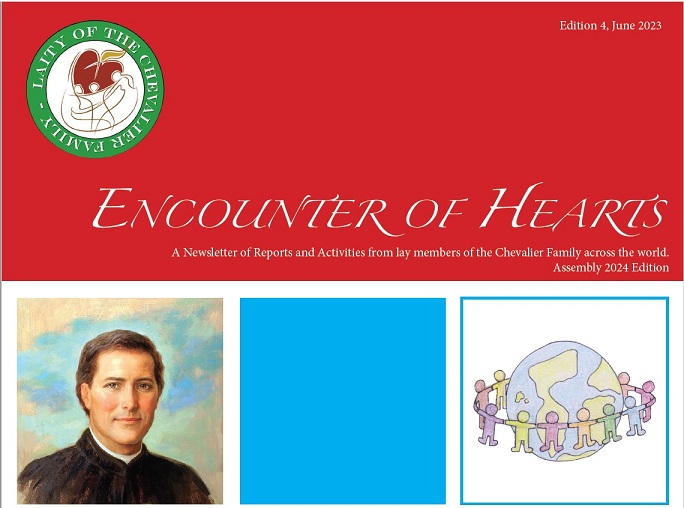
It is with great pleasure that the International Council of the Laity of the Chevalier Family is sending you the 2023 edition of our annual Newsletter, Encounter of Hearts. This edition of the newsletter is timed to coincide with the Feast of the Sacred Heart, the great feast of the church that celebrates the love God has for all creation. That fundamental belief that unites us all is embedded into every page of the newsletter, along with our call to live lives that reflect that love in the kindness, understanding, compassion and mutual forgiveness, gentleness, humility, simplicity, hospitality and a sense of humour that we show to our families and to all people we encounter in our daily lives. This is how we make God’s love real to those around us.
We ask that you share this newsletter with all of your members and the religious within your countries. We ask that you read the contents very carefully.
The newsletter contains the revised Guiding Principles and many of the policies and procedures that the International Council has worked on in the past 6 years. Much of the material contained in the newsletter will be discussed and voted on at the Assembly of Laity in January 2024.

The Newsletter pays tribute to Hans Kwakman and his contribution to Heart Spirituality
We ask that all groups read, reflect and discuss the material so that your delegates at the Assembly can vote according to your wishes.
The International Council would like to thank so many of you who have responded to our requests for comment and input as we have worked to create the governance structures that enable us to undertake our real work of connecting our members from every corner of the globe and assisting in the deepening of our own experience of God’s transforming love and in the ways we can share that good news with those we meet.
We especially thank our translators, Therese Poulton and Ana San Martin who have spent so many hours translating our work. For this edition of Encounter, we also thank Olguita and Ilama Enrique Bernal Pasquel from Peru for completing much of the Spanish translation.
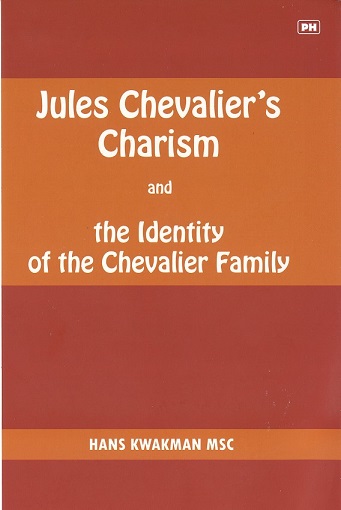
We also thank Rosie Abrahams from Australia for her beautiful formatting of each language edition.
To all of you, from the bottom of our hearts we give thanks.
We wish you a joyous Feast of the Sacred Heart and we look forward to meeting many of you in Cebu, Philippines next January.
Blessings
Alison, Doris, Rita, Peter, Sr Merle and Fr Hans and from those who work so closely with us: Hannie, Maria Olimpia, Olguita, Chris, Fr Richard.
For the Laity of the Chevalier Family, go this site's homepage, Click About us, Click The Chevalier Family and you will find the listing for the Laity...
Acknowledging Frank Dineen MSC, 85, June 12th
Acknowledging Frank Dineen MSC, 85, June 12th
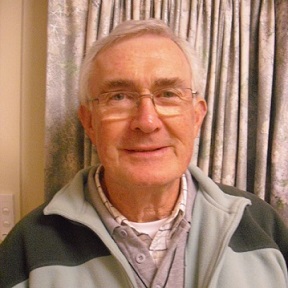
And remembering his MSC life and ministry. After working in the bank, Frank joined the MSC in 1970, making his first profession on 15th January 1972. After studies at St Paul's National Seminary he was ordained on 25th January 1975.
After a short time in the parish of Kippax in Canberra, Frank went to PNG, again working in parishes, in the city and beyond, in the bush. He was then appointed as the director of the MSC seminary in Bomana. He also served at a newly established spirituality centre in Rabaul.
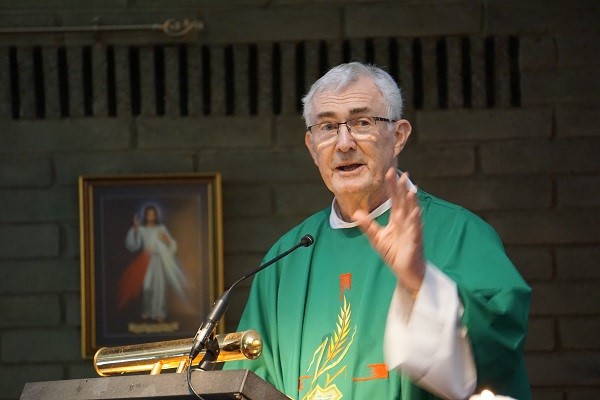
In the mid-1980s, he had an opportunity to do some courses on spirituality in Rome. Later, in the early 1990s, Frank also studied at the spirituality centre in Attelboro, Massachessets. The courses served as sound preparation for Frank's next decade, especially as Novice Master at Douglas Park. He has served on the Provincial Council for several terms.
He also spent some time in Willoughby parish in Sydney. Until the beginning of 2018, when he moved to the Provincial House in Coogee with responsibilities for Vocations, Formation and ongoing Formation, Frank spent seven years at Blackburn in Melbourne
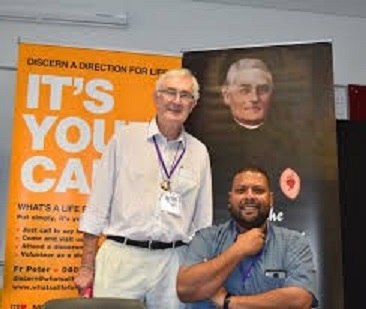
He was assistant parish priest but his main focus was on the formation of the professed students as they moved towards ordination.
This year he moved from Treand House to St Mary’s Towers.
Acknowledging, gratefully, Frank and his significant MSC ministry.
Preparing for the General Chapter, September-October 2023
Preparing for the General Chapter, September-October 2023
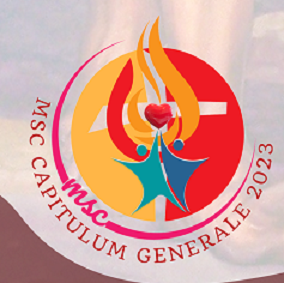
First Pre-Chapter Online Session, May 30, 2023,
by Javier Traperoin General Information for Delegates, Newson Posted on May 30, 2023
The first online preparatory session for the General Chapter took place in a fraternal atmosphere.
Chris Chaplin, msc, one of the facilitators of this meeting, explained how these online meetings will be developed. He introduced the official website of the General Chapter (26th MSC General Chapter 2023) and explained the information in the sections.
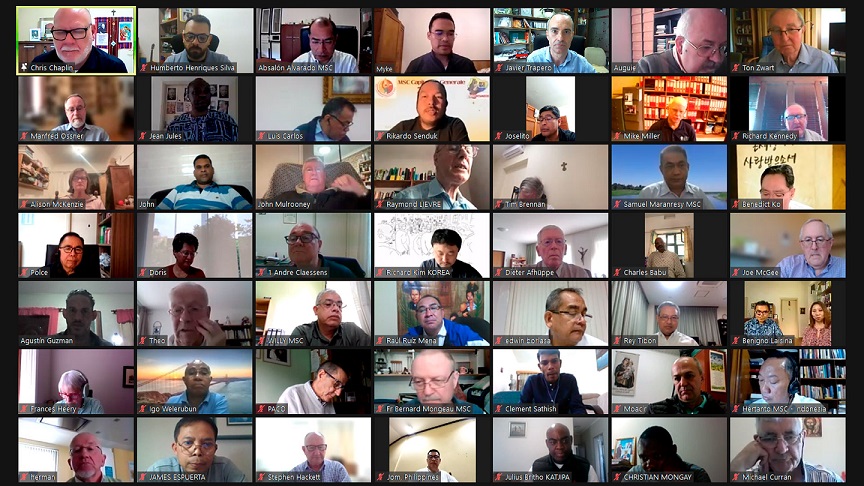
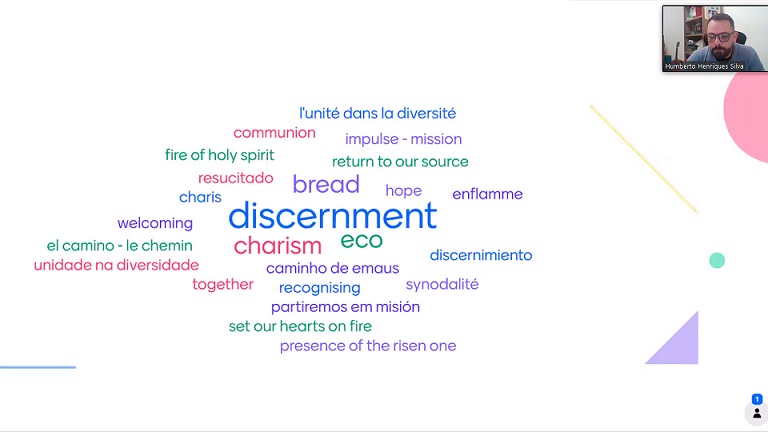
The main ideas expressed were:
- With all our cultural and ecclesial diversity, we are heirs of a Missionary Spirituality, a Spirituality of the Heart.
- The disciples of Emmaus walked with their hopes, disappointments, broken expectations, and perhaps open wounds. They walked together with Jesus he changed their disappointment into joy.
- We come to this moment after a long journey of listening, discernment, and work.
- We have tried to make the last six years a time of Listening and Co-sensing.
- We are on the doorstep of being able to contribute to the transformation, to the paradigm shift, and strengthening of our MSC identity that our congregation needs so much.
- We would say today is, or should be, a space of synodality.
- Let us make this Chapter process a living-out of the prophetic and missionary inspiration Fr Chevalier had in his time.
- Our entities and communities are waiting for us.
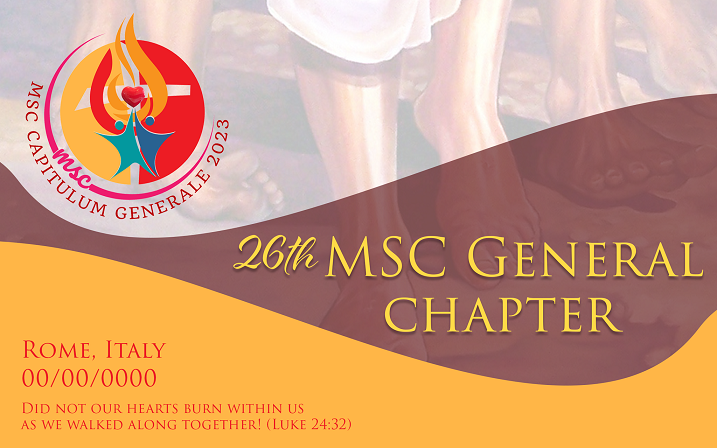
Chapter Dates
Online Chapter Sessions:
May 30-31, June 20-21, July 11-12, August 8-9
Chapter Assembly:
September 17 – October 7, 2023
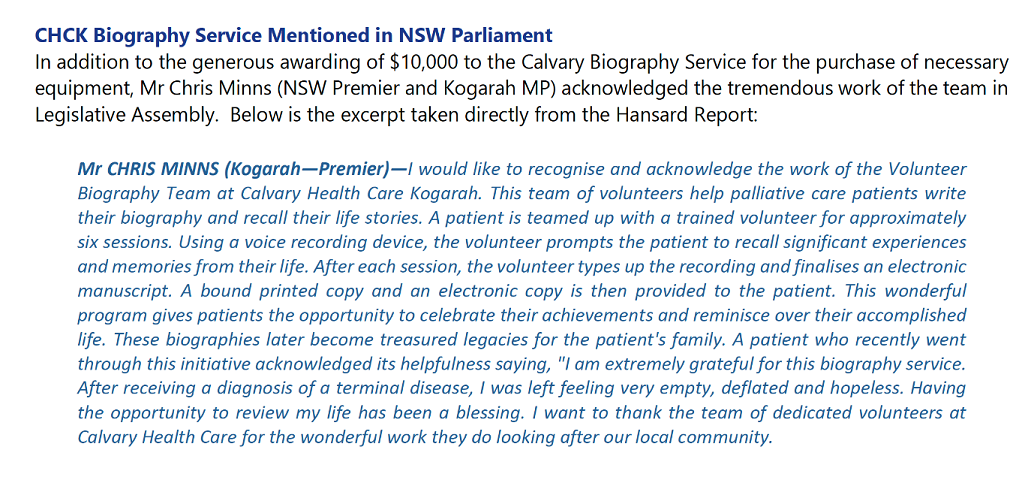
Driving Madeleine/ Une Belle Course
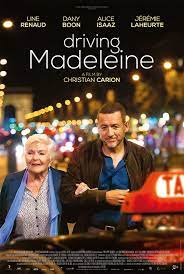
DRIVING MADELEINE/ UNE BELLE COURSE
France, 2022, 91 minutes, Colour.
Line Renaud, Dany Boon, Alice Isaaz, Jeremie Laheurte.
Directed by Christian Carion.
An unanticipated joyful entertainment.
There have been two Oscar-winning films about chauffeurs and passengers, Driving Miss Daisy, The Green Room, the interactions between passenger and driver, bonding and transforming consequences. The English title draws on Driving Miss Daisy. There can be a variety of translations of the French title, A Lovely Ride, one suggesting A Great Race. However, given the interactions between the two characters and their self-revelations, one might translate as A Good Run (a good/beautiful run through life, and engaging run for your money).
This is a brief film, 90 minutes – but audiences might have welcomed even more.
This is a film of Paris, the audience sharing the taxi ride with Madeleine and Charles, seeing some of the famous sites, but spending the time driving through the various neighbourhoods, looking, absorbing atmosphere, an enjoyable taxi trip. We are first introduced to the driver, Charles, Dany Boon, the subtitles referring to him as a “jerk”. And this is what he seems to be, grumpy, being told which route to go and ignoring it, angry phone calls to his brother, in danger of losing his taxi license with police points against him. He agrees to a request that takes him right across Paris to drive an elderly lady.
The elderly lady is Madeleine, her character age 92, the actress Line Renaud much the same age in this performance, Line Renaud being a very popular French singer since the 1950s. What is going to happen? Charles has to drive her to an aged care home because she has had a fall and is unable to stay in her house.
This seems rather ordinary but, just as he listens to Madeleine and her chatting, her questions, Charles becomes beguiled by her. So do we. And more rapidly than Charles does. Madeleine is most engaging, pleasant, getting Charles to listen, to speak a little, to smile. But, importantly for Madeleine, she is able to tell Charles something of her life story – and we see it in flashbacks. In fact, as we see her story we are reminded of key elements of 20th century history, France in World War II, American liberation, relationships with American GIs, children, marriage, domestic violence, courts and prisons, the Vietnam war… AliceIsaaz plays the young Madeline, a blend of the very charming, experiencing domestic violence, but a loving personality towards her son.
And, as the couple spend the day, Madeleine wanting to visit a plaque commemorating the death of her father at the hands of the Nazis, sitting on a bench near the river, looking across to the courts, reminiscing, Charles becoming, as we are, absorbed by Madeleine’s story and her personality. Of course, Madeleine is able to elicit from Charles something of his story, age 46 (half her age, she observes, could be her grandson – and in the delightful scene, she plays on this in saving Charles from the gendarmes who want to give him a ticket for crashing a red light). There are no flashbacks to Charles’ story, just his telling something of his story.
The trip across Paris has to come to an end but Charles delays it, taking Madeleine to a plush restaurant for a final meal, delivering her to the door, and some sad farewells. Sensitive direction by Christian Carion (Joyeux Noel, the moving World War I drama).
We can guess something of the ending but it is a pleasure to experience it – but, not without tears, Charles’ tears and, our tears. Here is a wonderful happy-sad ending to the drive. And, wait for the final credits where there is a lovely reminiscence and dance sequence, Paris, 1944.
- The title, the focus on Madeline, on Charles as her taxi driver? The French title, translation, A Lovely Ride, or A Good Run?
- The Paris settings, the city, the landmarks, driving through all the districts, a taxi ride through Paris? The musical score? The English-language songs, Sunny Side of the Street, At Last?
- The situation, ordinary, yet moving beyond the ordinary, to people, listening, bonding, consequences?
- The structure of the film: the introduction to Charles, his taxi, calling himself a jerk, clashes with his brother, the relationship with his wife, tensions, her being a nurse, love for his daughter, Betty? Points against him and his driving, the possibility of losing the taxi? The passenger, directing him, his ignoring the directions? The call, the request for Madeleine? His seeming reluctance, going, ringing the bell, impatience?
- Madeleine, waiting on the footpath, approaching the taxi, initial interactions with Charles? Her being chatty, his silence, touch of the morose, her telling her age, 92? Asking his age, 46?
- Line Renaud as Madeleine, being in her 90s for this performance, her career, Singer? In this role? Age, appearance, clothes? Her talking, engaging Charles, the flashbacks to her life? Her age, her mother, the clerk with her father executed by the Nazis? 16, the war, the Americans, the encounter with Matt? The three happiest months of her life? Her pregnancy? His going back to America, the later writing, his being married with two children, her stopping contact? Yet the vividness of her memories, the kisses? Moving on to the 1950s, looking after her son, working with her mother in the theatre? Marriage to Ray? His reactions to her, the criticisms of her son, bastard? Hitting Madeleine? The scenes at home, Madeline’s final exasperation, the injuries, dressing up, sending her son to her mother, the phenobarbital in his drink, his being a welder, her physical attack on him?
- Madeleine, arrested, telling the story to Charles, rousing his interest, his gradual response, listening, smiling? The trial, the 1950s, women’s and their lack of rights, 25 year sentence, Ray giving testimony in court, lying? Madeleine and her 13 years in prison, release, her son grown up, her ambitions for him to be a lawyer, his being a photographer, his room, the photos, his leaving fear for Vietnam, her being hurt, his statement that he was in prison while she was in prison, all the local comments about his being her son? The support of her mother? The news from Vietnam, his death after six months? The coffin, the public celebration, Ray turning up to be in the photos, Madeleine asking for a closed ceremony, alone with her son?
- The story not explaining the rest of Madeleine’s life, living so long, the attempted suicide and failure? Later, seeing the photos, her protesting for women’s rights against domestic violence?
- Audience response to Madeleine, Line Renaud’s performance and presence, engaging, gentle, tough, humour, Charles going through thread light, Madeleine charming the police officer, the story about her grandson and her physical condition, saving his licence? Sitting on the seats and watching the crowd, buying the ice cream, going to visit her father’s monument, looking across the court? The audience engaged with Madeleine?
- Sharing Charles’ response, his gradual mellowing, liking Madeleine, sharing the day, listening to the stories, going through the red light, his desperation, Madeleine saving him? Sharing the ice cream, looking at the sights? Phone calls to his brother, antagonism? His wife? And the stories about his love for his daughter, taking to see the sights of Paris and her blue eyes glowing?
- The institution, the phone call, wanting Madeleine? The delay for two hours, going to the restaurant, enjoying the meal? Arriving at the aged care home, the reactions, Madeleine not wanting to sit in the wheelchair? The farewell?
- Charles, talking with his wife, wanting her to meet Madeleine, her hesitation? The issue of the non-payment of the taxi fare? The couple going, the news of Madeleine’s death, Charles going to her room, weeping, his wife’s response? The family going to the cemetery? The lawyer, the letter from Madeleine, selling her house, the cheque for Charles?
- Happy ending, yet tears? The audience sharing Charles response to Madeleine?
- The end credits, Madeleine dancing with Matt, love, the tenderness, the song, At Last some by Etta James?
